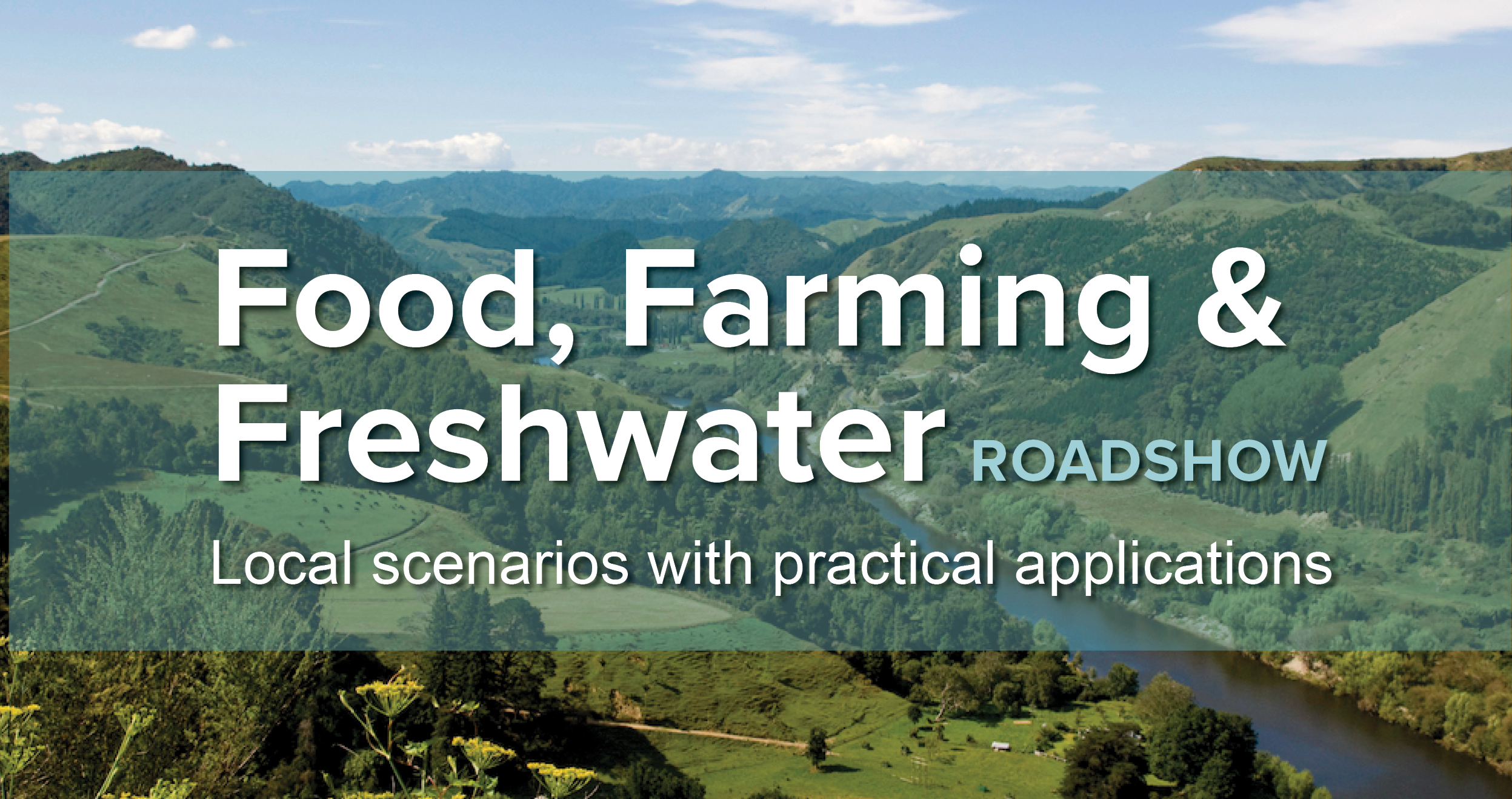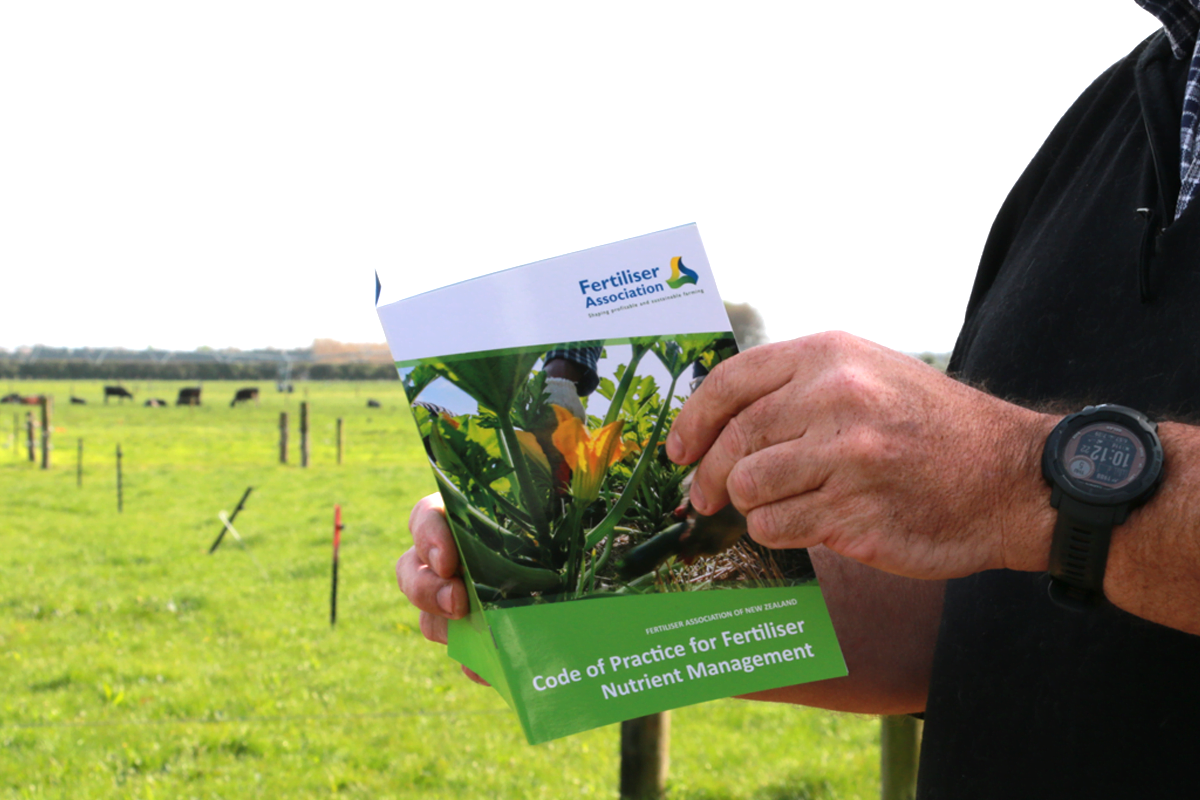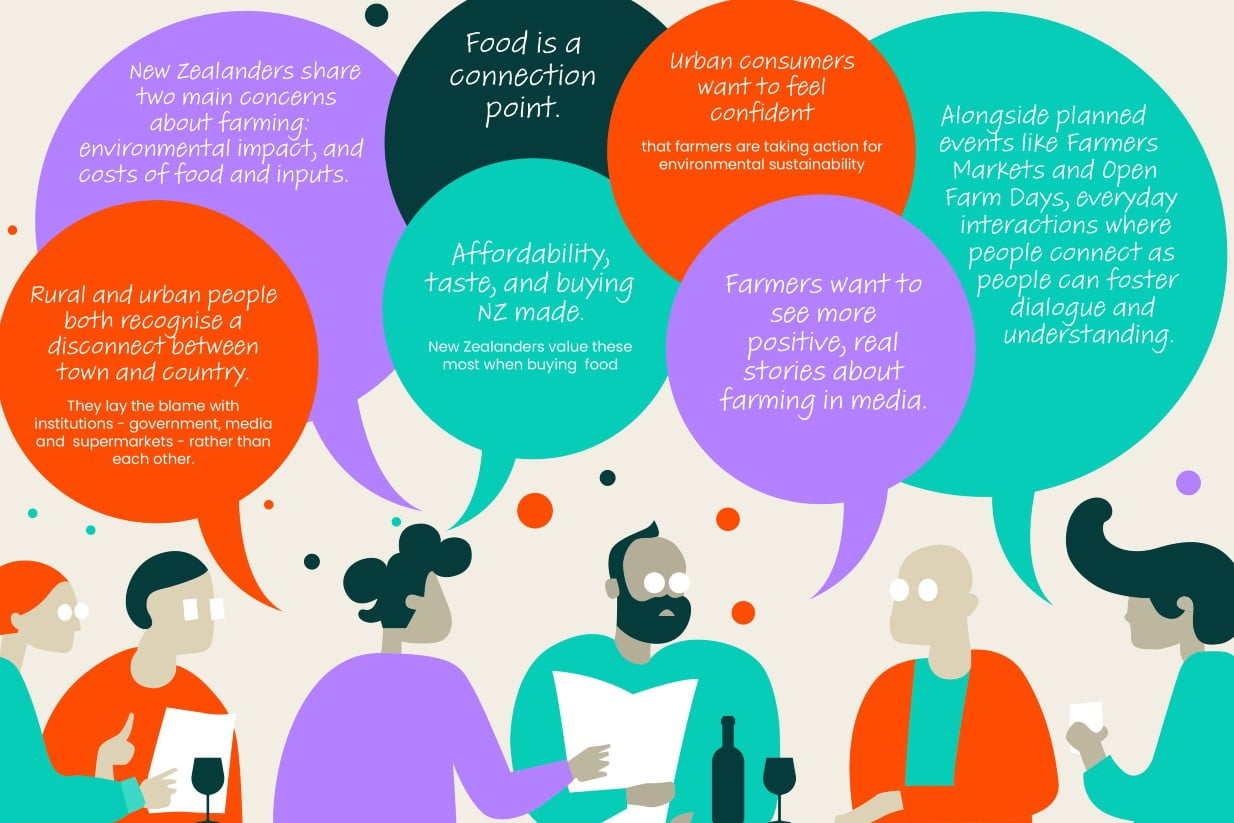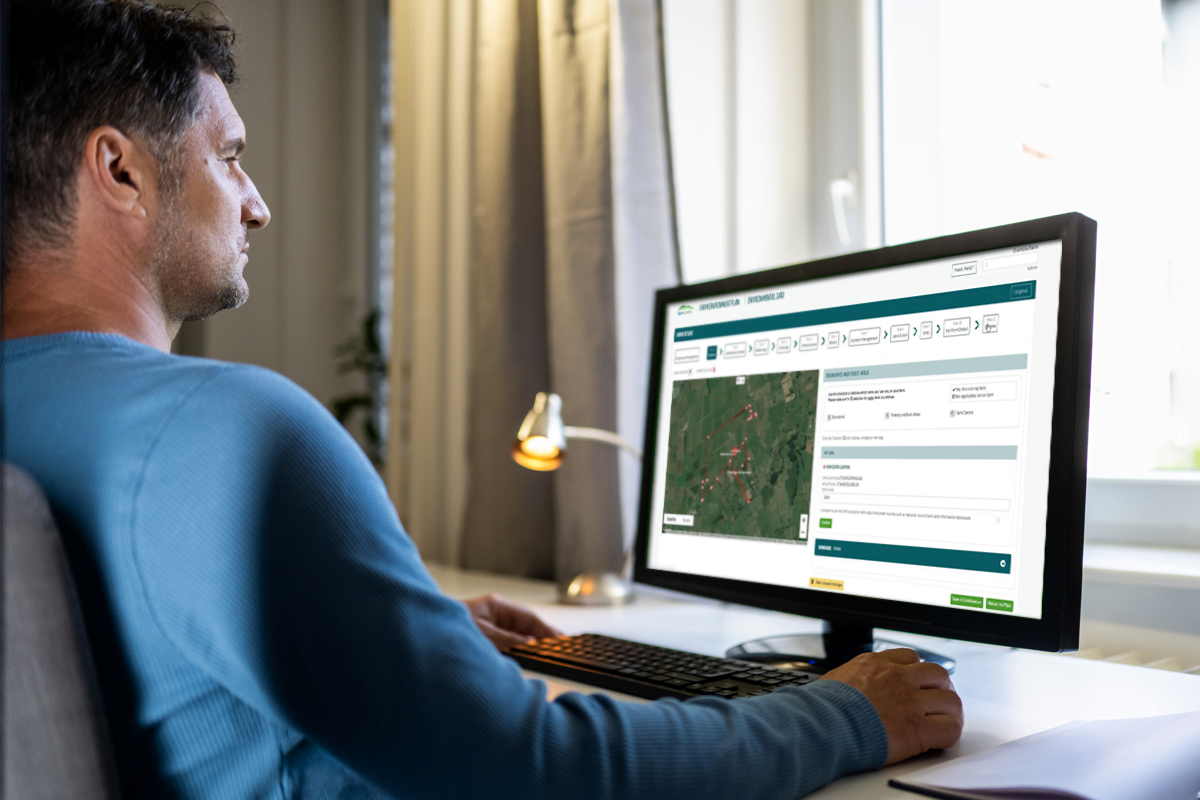Announcing 20 New Research Projects
Twenty new research projects have been funded by Our Land and Water. Several will provide strategic insight for land-use changes or responding to likely future scenarios. New production models for Māori will be explored. Four projects look at building social licence to operate, and two aim to improve access to land and water data.
Twenty new research projects have been funded by Our Land and Water (Toitu te Whenua, Toiora te Wai) following a contestable funding round. Five new research programmes will run until December 2023, and 15 smaller ‘think piece' projects will be completed by early 2023.
Some projects will develop future scenarios for plant-based proteins, crop disease, arable agriculture, and imported feed shortages. Several others will provide strategic insight for land-use changes, including workforce implications, native bush reversion, and adding trees and protein harvest to pasture systems. New production models for Māori will be explored, looking back at historical Māori land-use practices, and forward to the development of high-value functional food products utilising indigenous species. Four projects look at building social licence to operate, and two aim to improve access to land and water data. Project leaders include senior, emerging and independent researchers, professors, rural advisors, and individuals from industry groups and Māori entities.
The people named below are the principal contacts, with a wider team involved in all projects. The Our Land and Water funding is indicative and does not include co-funding or in-kind funding from project partners.
Funded Programmes
Protein Future Scenarios
Increasing global interest and demand for alternative or plant-based protein has many implications for Aotearoa New Zealand. These may be positive (a potential decrease in GHGs and nutrient runoff, the establishment of new markets for new products) and negative (disruption to the economics of milk and meat products). This research programme will develop scenarios for plausible future states associated with the impact of ‘new proteins', and model the economic, land use, and environmental implications. The methodology will be shared with a Norwegian project. Findings will contribute to the identification of best practices for the plant-based protein sector. The research will include a comprehensive assessment of a potential Māori protein economy. The goal of this research is for New Zealand to more effectively respond to the impacts and opportunities associated with the growth in demand and production of new proteins.
- Our Land and Water funding: $387,677
- Key contact: Jon Manhire, The Agribusiness Group
Crop Disease Under Climate Change
Many plant diseases thrive in warm spring temperatures, and the risk to our $6 billion horticulture sector is likely to increase as climate change impacts New Zealand. For growers to successfully adapt to climate change, they need to know how future temperature, moisture conditions, and extreme weather events will change disease risks and seasonal plant susceptibility. This research will predict change in disease risk by integrating the latest climate change scenarios with disease risk and plant phenology models. An economics team will investigate the potential impacts on our global agricultural markets, and on producer and consumer prices in New Zealand. Discussion with industry sectors will explore adaptation options. A key partner in the research is HortPlus, which has a network of weather stations and the ability to create simple user interfaces through MetWatch. This research will be integrated with the Whitiwhiti Ora – Land Use Opportunities research programme.
- Our Land and Water funding: $860,714
- Key contact: Grant Morris, Plant and Food Research
Workforce Implications of Land-Use Change
Labour shortages in the agrifood sector were highlighted when Covid-19 closed borders, but the underlying shortages go back further. For example, the conversion of sheep, beef, and arable farms to dairying in Southland and Canterbury created a demand for staff that exceeded regional workforce availability, requiring immigrant labour. Any proposed land-use change should consider the capacity of the available workforce. With partners NZIER, MPI, and Northland Inc (the regional economic development agency for Northland), this research will investigate how regional workforce capacity affects the suitability of different land-use types, and strategies and interventions that could mitigate workforce constraints, such as counter-seasonal production. The aim of the research is to incorporate information about the workforce implications of land-use change into existing and proposed tools that support land-use change decisions.
- Our Land and Water funding: $328,800
- Key contact: Adam Barker, Scarlatti
Kuaha Matihiko: Digital Gateway
Land and water data can be inaccessible, expensive, hard to find, or not publicly available. A new digital gateway is needed to give all New Zealanders transparent access to trusted data sources. This research aims to create a digital MVP (minimum viable product) gateway to data and tools that is user-friendly, open-access, inclusive, collaborative, and trustworthy. Called Kuaha Matihiko, the digital gateway aims to consolidate access to disparate systems and data layers behind a single ‘shop-front' that enables people to both access and contribute data. The project will be highly participatory, with the gateway co-designed through wānanga and engagement with Māori, local and central government, and other stakeholders, to ensure that Kuaha Matihiko is relevant and attractive to various groups to meet their needs.
- Our Land and Water funding: $703,000
- Key contact: Dr Adrian Cookson, AgResearch
Connecting Food Producers and Consumers
Do farmers perceive good farming practice differently from consumers and citizens in Aotearoa? Aligning the perceptions and practices of ‘good farming’ is key to community approval or acceptance (social licence to operate) of different farm sectors and farm types. This research project will explore new ways to connect producers, consumers, and citizens to constructively discuss, negotiate, share and communicate good farming practices. It will also consider where this should happen. Some spaces and places are likely to be better suited to building meaningful relationships than others, such as the peri-urban zones just outside cities. Research partners Open Farms, Thriving Southland and Quorum Sense will help develop, identify and test new practices and initiatives to strengthen relationships between producers and consumers, locally, regionally and nationally.
- Our Land and Water funding: $986,140
- Key contact: Dr Peter Edwards, Manaaki Whenua Landcare Research
Funded Think Pieces
Land-Use Scenarios for Nikau Farm
This project aims to identify the long-term consequences of land-use changes, using the Nikau Farm as a case study. The Nikau Estate Trust's farm is a 90ha Māori-owned farm adjacent to Lake Waikare in the lower Waikato, one of the most polluted lakes in Aotearoa. Over the past five years, Nikau Farm has changed its intensive dairy farming system into a rotation of corn, watermelon, and dairy, and has transformed significant areas of productive land into native vegetation. Additional land-use changes in the future may include the transition of land into solar farming. The project aims to create a systems-based map to identify the potential impacts and benefits of land-use and management changes, with outcomes demonstrated or quantified by evidence and mātauranga-based knowledge.
- Our Land and Water funding: $124,300
- Key contacts: Dr Maria Jesus Gutierrez Gines, ESR; Tawera Nikau, Nikau Farm
Early Māori Agricultural Entrepreneurship
Historical Māori land use practice was adapted to create unprecedented primary production and export success immediately after early European contact (1840-1864, the “golden years” of Māori agricultural entrepreneurship). The cultural/social enterprise model for food production used by Māori enhanced community wellbeing and maintained the mauri of traditional ecosystems. This project will produce a White Paper exploring how this model could inform the creation of new production models that are socially responsive, non-exploitative, high-value and world-leading. Māori elders will contribute through interviews about historical events, recognising rangatira rangahau and mana motuhake. The research is supported by Kohimarama Aotearoa, a regional network of whenua Māori land blocks in regions of high socio-economic deprivation, with international reach across the Kohimarama / Global Research Alliance indigenous network.
- Our Land and Water funding: $129,800
- Key contact: Garry Watson, Ngā Uri o te Ngahere Trust
Peri-Urban Potential
The productive land surrounding New Zealand cities is increasingly under threat from urban expansion. These peri-urban zones are vitally important to New Zealand’s settlements, communities, ecology, and economies. This project will investigate innovative land-use possibilities that benefit both people and production within the contentious peri-urban zone. The research team will adopt bicultural design principles to develop Aotearoa-specific spatial land use typologies for the peri-urban zone that prioritise māra kai and mahinga kai, with the aim of re-connecting whānau, whenua and food.
- Our Land and Water funding: $130,000
- Key contact: Dr Shannon Davis, Lincoln University
Diverse Experiences of Farming
By better understanding the underlying worldviews that shape perceptions of farming and the agri-food industry, this project aims to support empathetic connections between producers and consumers. Key language associated with social licence to operate, farming and te Taiao will be surveyed to identify points of connection among diverse communities. A core component of the project includes understanding, identifying, articulating, and visualising experiences of agriculture among various stakeholders, industry, community groups and others. The project aims to generate recommendations for connecting New Zealanders to build a unified foundation for discussion, to support more trusting relationships around farming, and improve social licence to operate.
- Our Land and Water funding: $129,970
- Key contacts: Dr Cadey Korson & Dr Alice Beban, Massey University
Shared Vision for Land Use in Marlborough
Forestry, viticulture, and beef and lamb production dominate the Marlborough landscape. This project will explore the potential to increase the diversity of farm systems in Marlborough to address the region's social, environmental, and economic challenges. Researchers will conduct interviews to identify and construct a united vision of land use in Marlborough that strikes a better balance between the needs of all groups that share the region's land and water. The research aims to identify connections and relationships that need to be established to facilitate collaborative regional change. Different ways to support communities to imagine, plan and begin transitioning towards diversification will be identified and assessed.
- Our Land and Water funding: $130,000
- Key contact: Michelle Barry, Bragato Research Institute
Pasture for Humans
Technology is progressing that can extract protein from pasture, to create a plant protein food ingredient for human consumption. The opportunity to develop a new plant protein industry in Aotearoa depends upon on-farm viability, or there will be no incentive to make pasture available for producing protein foods. Working with three case study dairy farms, this project aims to demonstrate how a farmer would integrate protein harvest into existing pastoral grazing systems, and assess the potential economic consequences for both farm and region. The project will also seek to validate that shifting a proportion of Aotearoa’s pasture from ruminant grazing to direct recovery of plant protein will reduce pastoral farming's environmental footprint (GHG and water quality).
- Our Land and Water funding: $127,530
- Key contact: Nicola Morris, BakerAg
Silvopastoral Systems
Silvopasturalism is the practice of integrating trees in a livestock production system. Soil conservation has been the main driver of silvopastoralism in New Zealand’s hill country, but other benefits may include cultural impacts, animal welfare, biodiversity conservation, carbon sequestration, hydrological impacts, soil nutrient effects, and climate resilience. Native trees may have advantages over poplar, willow, and radiata pine systems in longevity, potential to improve pasture and soil, and as important habitats for native birds and insects. This project will identify knowledge gaps and research needs related to biophysical mechanisms for silvopastoralism in Aotearoa. It will consider ways in which silvopastoral systems can impact environmental, economic, and cultural land management outcomes in Aotearoa, and identify barriers to adoption.
- Our Land and Water funding: $130,000
- Key contact: Raphael Spiekermann, Manaaki Whenua Landcare Research
Impact of Imported Feed Shortages
Pork, poultry and high-input dairy farms are facing significantly higher prices for imported feed, due to shipping costs and supply issues as a consequence of the Covid-19 pandemic and the Russia-Ukraine conflict. This is creating challenges for farmers who are struggling to meet production goals and animal welfare targets while remaining profitable. This project will investigate the impact on the agricultural sector if supplementary feeds cannot be imported or are too expensive. It will explore how dairy farmers could change their farm systems so they didn’t need to rely on imported supplements, how land-use would change if all imported feeds had to be replaced by domestically grown crops, and the impact of insufficient domestically grown supplementary feeds. The project will detail alternative and realistic solutions that will outline a pathway for our primary industries to navigate through during these challenging global events.
- Our Land and Water funding: $110,000
- Key contact: Jeremy Hunt, AgFirst
Future Scenarios for Arable Agriculture
A range of disruptive scenarios could impact New Zealand's arable sector, such as climate change, new trade agreements or bans, or new technology adoption. Global and policy-specific scenarios will be developed by this project, with analysis of the consequences of these scenarios on land-use change, resilience, sustainability and profitability over the next 5 to 30 years. The research will develop an interactive tool to support strategic planning to respond to the risks, opportunities and impacts of these scenarios.
- Our Land and Water funding: $129,984
- Key contact: Prof Tom Cochrane, University of Canterbury
Urban-Rural Partnerships for Equal Change
Some farmers say they are tired of people with “no skin in the game” telling them to make difficult changes and sacrifices. Others feel blamed rather than part of a shared responsibility. This project will test the idea that if farmers see urban groups making equal change to improve the environment, they would be more motivated to make change themselves. Two partnership groups (one made up of farming and urban businesses, the other made up of a catchment group and urban businesses) will be formed to co-design outcomes and agree to equal actions. The research team will support the groups to deliver on their change commitments, evaluate impact and share progress. The research’s output will be a replicable process for implementing a shared-responsibility approach to environmental projects, uniting urban and rural dwellers.
- Our Land and Water funding: $130,000
- Key contact: Dana Carver, Scarlatti
Incentives for Data Sharing
Multilateral data-sharing is a goal of many organisations in New Zealand’s agrifood sector. Data exchange between landowners and industry organisations would inform land and water monitoring tools, and access to timely and accurate data would support farm planning and improve outcomes. Past attempts to facilitate multilateral data sharing have had some success, but none have achieved widespread adoption. The system has become stuck in an unfavourable Prisoners Dilemma-style equilibrium. This project will investigate potential interventions that could align incentives to break out of this situation. A simulation model will test the sensitivity of different interventions to shift the current equilibrium. The objective is to trigger a virtuous circle in which greater access to data incentivises more organisations to participate, thereby increasing access to data. Research participants include MfE, DairyNZ, and specialists in game theory, data systems in the primary sector, and Māori data sovereignty.
- Our Land and Water funding: $129,590
- Key contact: Adam Barker, Scarlatti
Enhancing Assurance Schemes
Farm certification schemes (such as NZFAP or FAP+) are an important way to build social licence to operate, address market and regulatory concerns, provide greater transparency, and incorporate cultural values into practices. Many of these assurance systems and other monitoring mechanisms are well established – but trust in them is eroding. This project will develop recommendations to enhance assurance programmes, including how they can be used more effectively to build trust between farmers and communities. The work will also consider the need for continuous improvement, and how Māori perspectives, insights and cultural attributes could be incorporated into assurance processes.
- Our Land and Water funding: $129,790
- Key contact: Prof Pavel Castka, University of Canterbury
Retiring Farmland into Ngahere
When less productive farmland is ‘retired' into ngahere (bush or forest) there can be positive impacts on water quality, GHG emissions, farm management and profitability. This project builds on 10 years of results from a Primary Growth Partnership that retired over 400ha of marginal land into manuka plantations for honey, then applied that knowledge to broader land retirement into mixed natives on steep erosion-prone slopes, riparian margins, and critical source areas. This work identified potential savings of more than 50% of the current cost to establish native plantations, by replicating the natural reversion process. This project will create short videos and graphics sharing best-practice methods for low-cost, broad-scale land retirement into ngahere, covering important factors including: weed and pest control before planting, mix of forestry-grade coloniser species, planting density for various tree species, soil biome, and establishment timelines.
- Our Land and Water funding: $130,000
- Key contact: Alison Dewes, Tipu Whenua
EU Farm to Fork: Impact on NZ Exports
The European Union’s Farm to Fork Strategy presents challenges and opportunities for New Zealand exports into the EU, and into other regions that adopt similar standards in response. This project will focus on the New Zealand dairy and wine sectors as case studies to investigate the potential effects of emerging EU policies on exports. Fonterra, NZ Winegrowers, Organics Aotearoa NZ, and Organic Winegrowers NZ are collaborators in the project. The research aims to provide an economic rationale for transitioning to organic and other ‘environmentally responsible' production methods, based on retaining and potentially improving market access into the EU. The research is intended to be useful to New Zealand’s negotiators with the EU during the process of concluding the New Zealand-EU Free Trade Agreement.
- Our Land and Water funding: $119,100
- Key contacts: Alistair Schorn & Tiffany Tompkins, Organics Aotearoa NZ
Appropriate Use of Taonga Species
More than 60% of freehold Māori land is covered by forest or shrub, with much in its indigenous state. Global demand for ‘functional ingredients' provides opportunities for Māori landowners to develop high-value products that utilise the bioactive properties of indigenous species and associated mātauranga. This project aims to support Māori landowners to explore what tikanga-led good practice, cultural licence, and appropriate sharing of collective benefits across the value chain looks like when developing products containing indigenous species. A key aspect of this work will be to test the development of a collective mechanism that will enhance their ability to engage in robust access, utilisation and benefit-sharing negotiations, further unlocking the potential of Māori land. An easy-to-understand video and infographic will help others around the motu understand the process.
- Our Land and Water funding: $130,000
- Key contacts: Dr Meika Foster, Wakatū Incorporation; Aroha Te Pareake Mead, independent researcher
For updates on these projects, please sign up for our newsletter and follow Our Land and Water on social media: Twitter | Facebook | LinkedIn | Instagram
Author
 View Our Strategy Document 2019 – 2024
View Our Strategy Document 2019 – 2024




Leave a Reply